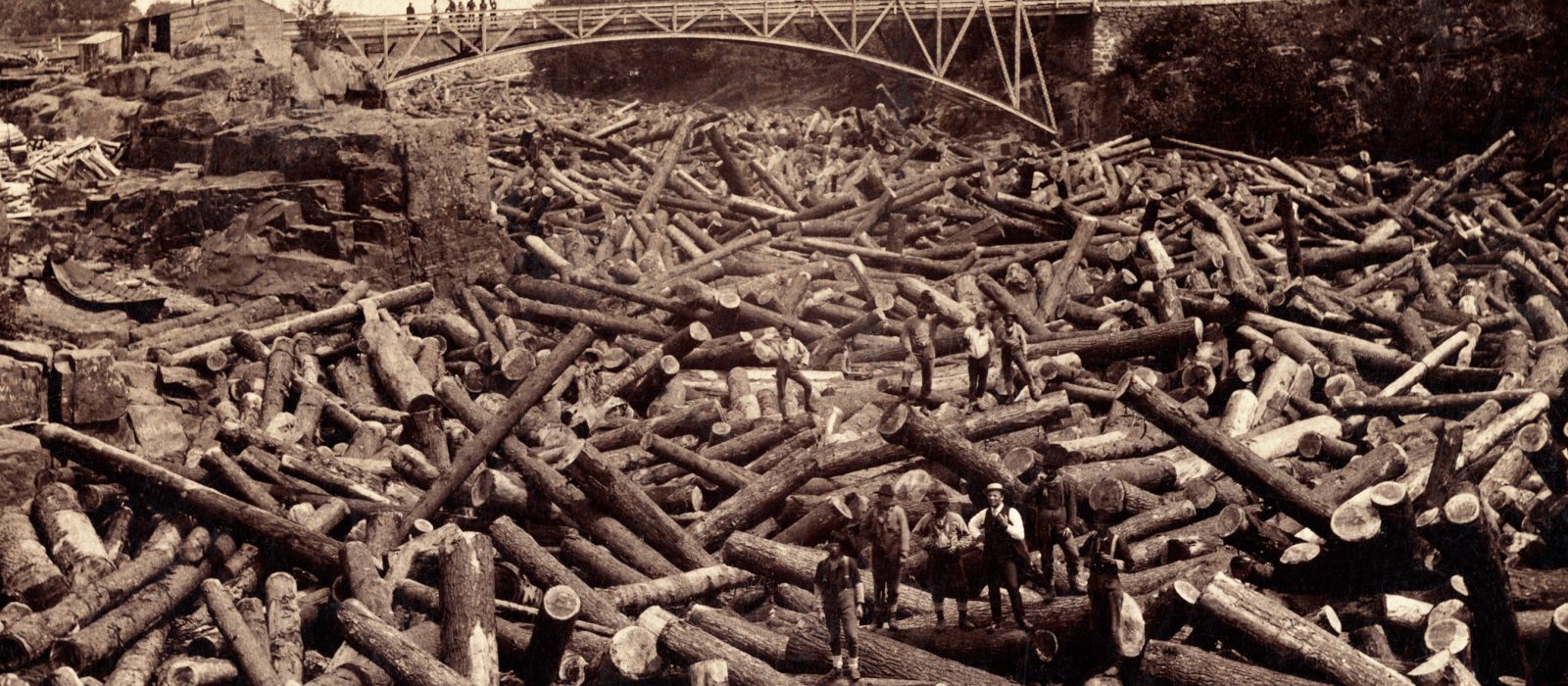GOTHENBURG AS A TIMBER EXPORT HUB
During this period, sawmill owners, also known as the Timber Barons, could gain large profits from intensive logging operations. In those days, the concept of reforestation was unknown. It was not until 1903, when the first Swedish Silvicultural Law stipulated a duty to replant cleared forests.

During the industrial revolution of Western Europe in the 19th century, demand increased for sawn timber. In 1849, England’s favourable customs duties on Canadian timber disappeared, causing Nordic sawmills to become more competitive. In the same year, the first steam-operated saws began operating in Tunadal. The logs could now be rafted to the coast where they were sawn, this way achieving a better quality than rafted sawn timber.
At the outset of the 19th century, many large forested areas had been transferred to farmers in connection with the privatisation of common lands. The sawmills bought logging rights from the farmers, and towards the end of the century the companies started to purchase forested land themselves.
During the 19th century, James Dickson & Co. was one of the most prominent trading houses in Gothenburg. The company was founded in 1816 by the immigrant Scotsman James Dickson (1784–1855), who went on to become an important player in the forest industry. Before he arrived in Gothenburg in 1809, James Dickson had operated a trading business in Scotland that primarily focused on timber imports from Norway.
In Gothenburg, Dickson put his bets on timber exports to the United Kingdom. In the 1820’s he took over a company in Värmland that became his first sawmill. Following this, he concentrated his acquisitions in the area around the Swedish rivers Ljungan, Umeälv och Ljusnan. This company came to dominate Swedish timber exports. One saw in the village of Baggböle became the origin for the Swedish expression “baggböleri” with the meaning of luring logging or forest property right from their proper owners in return for alcoholic drinks. Later the term became an expression for shady business deals in general. The origin of this expression, however, referred to illegal felling of state forests.
A major part of the forest product exports went through Gothenburg where many trading houses were established for the purpose of trading in timber. The majority of timber exports originates from Swedish sawmills, while the paper and pulp business is derived from overseas producers. This has caused Gothenburg to become one of the largest international trading sites for forest products.
